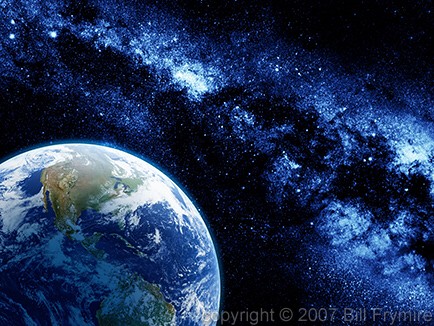We are wonderful, aren’t we? After just about 200,000 years as an identified species on a planet 4.5 billion years old, 6,000 years of civilization and barely 200 years of practical technological development, we have come to the threshold of exploration of the universe.
And who else is out there, we wonder?
Well, here’s the sticky bit: the oldest stars were formed about 13.4 billion years ago and our Milky Way galaxy as we know it coalesced some 1 – 3 billion years later. Arguably then, the first of the rocky planets in our neck of the woods got busy with evolution some 5 billion years before we did. That’s an awful lot of time for trial-and-error with the development of alien intelligent life.
How long can civilisation last?
Possibly thousands of intelligent civilisations have come and gone before us. If they were driven by aggression and the pursuit of material gain (sounds familiar?), then 10,000 years might be the practical limit on the lifetime of a civilisation. We know how to destroy each other and, apparently, how to destroy our planet as a viable home as well. Still, with an estimated 40 billion exoplanets in the Milky Way that might support life as we know it, we could still expect there to be quite a few alien civilisations out there, doing their thing.
So, what do they look like?
Our chemistry is compelling
http://www.seti.org/seti-institute/Search-Extraterrestrial-Life-Post-Biological-Intelligence-1
There’s a lot of carbon and water around in the Milky Way, and asteroids seem to be carrying the organic precursors of our life forms around with them. While we can’t rule out silicon as a polymer base element or sulphur as a fuel, this sort of chemistry is vastly inferior to ours in terms of adaptability and multiplicity. If you’ve got water, carbon and a few other elements, a temperate climate, and solar radiation, sooner or later something’s going to start wriggling. But it will depend on the topography of the home planet what we look like. We are apes because the environment suited ape-like creatures. We might have evolved from lizards, or air-born creatures. And what would our American brethren have looked like if there had been no land-bridge between the great continents?
Intelligent civilisation requires manual skills and language to progress to the development of communications technology. Our evolutionary system, brutal and arbitrary as it is, got us there. Others might be more or less efficient, but life is irrepressible, and it is our destiny to meet the others.
Just what are we going to say to them?
Prometheus

